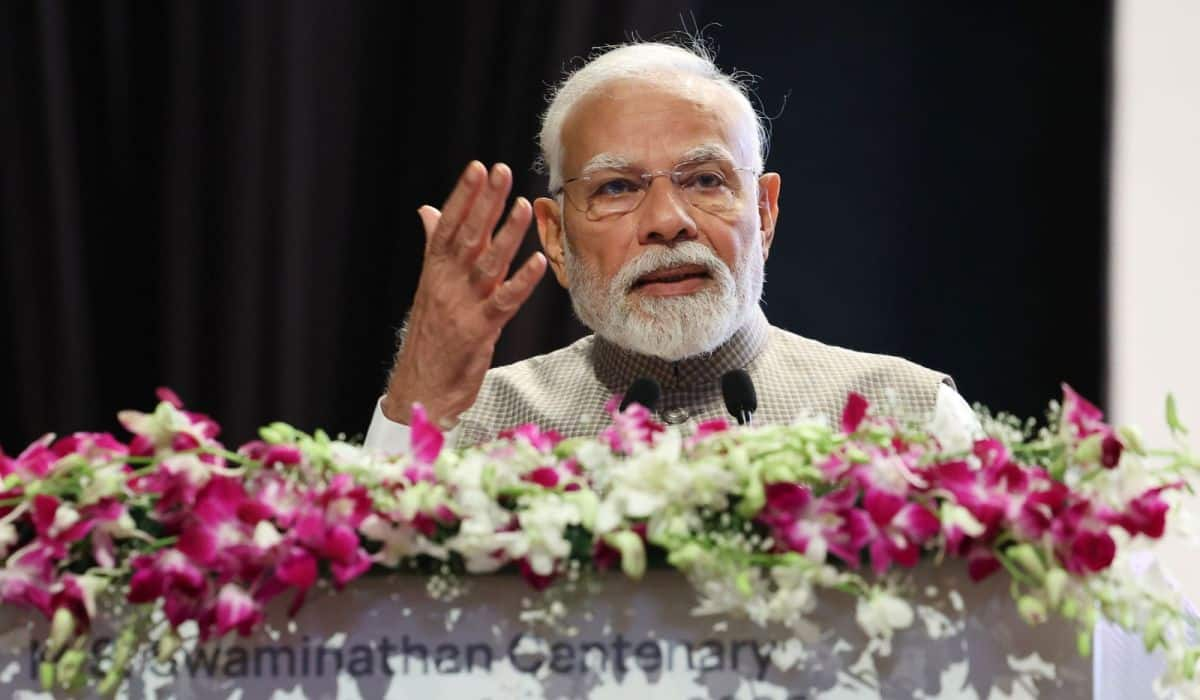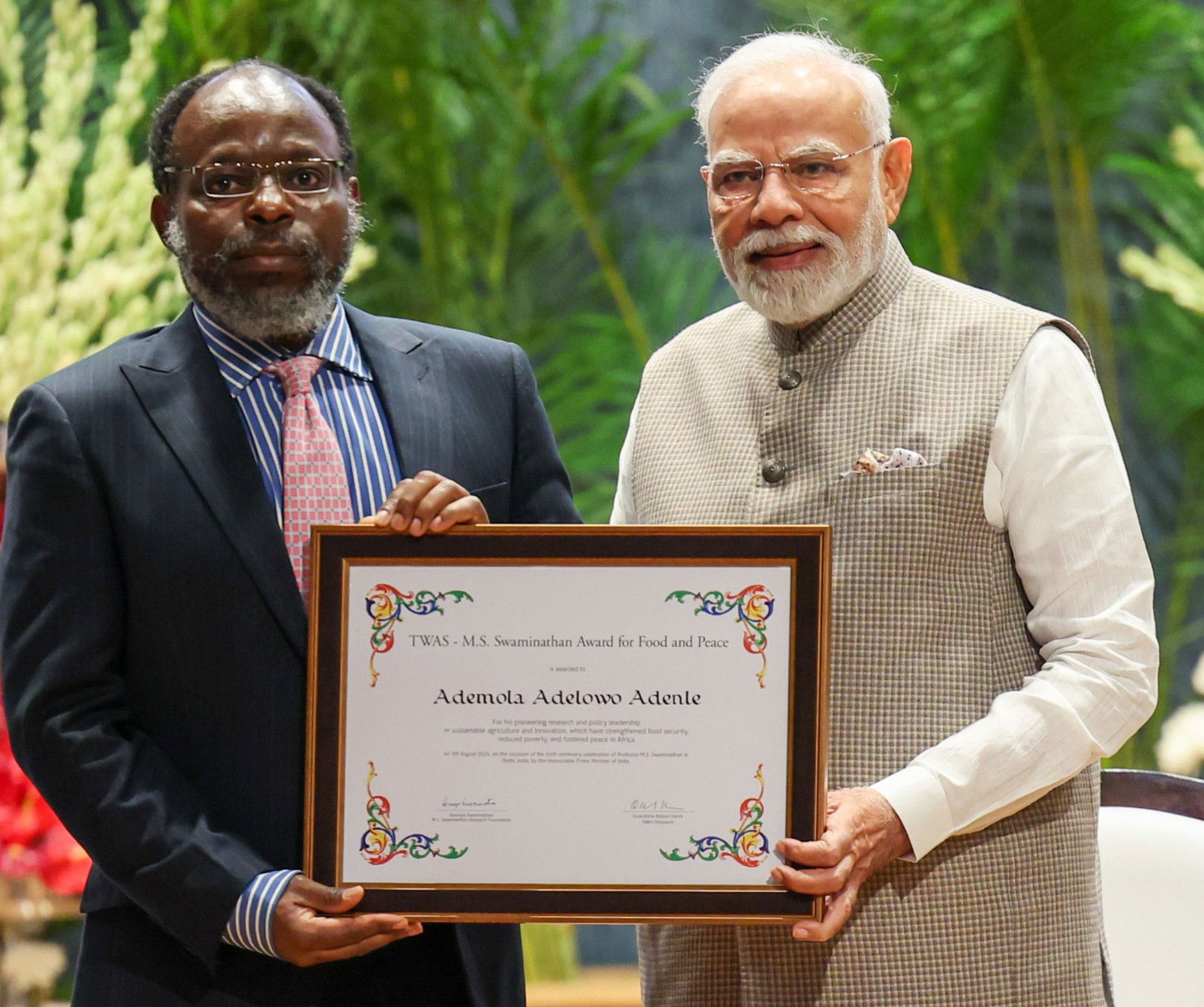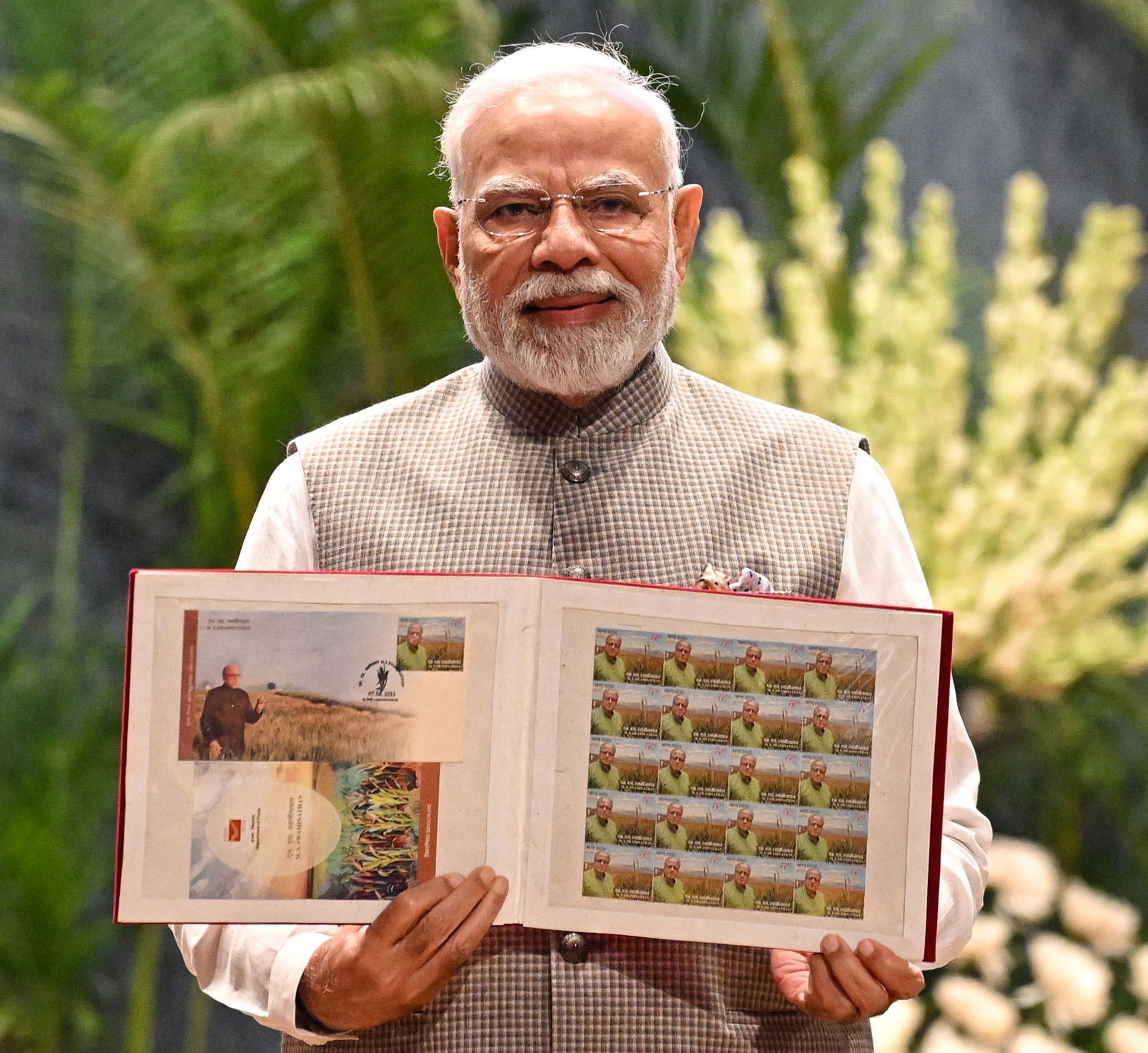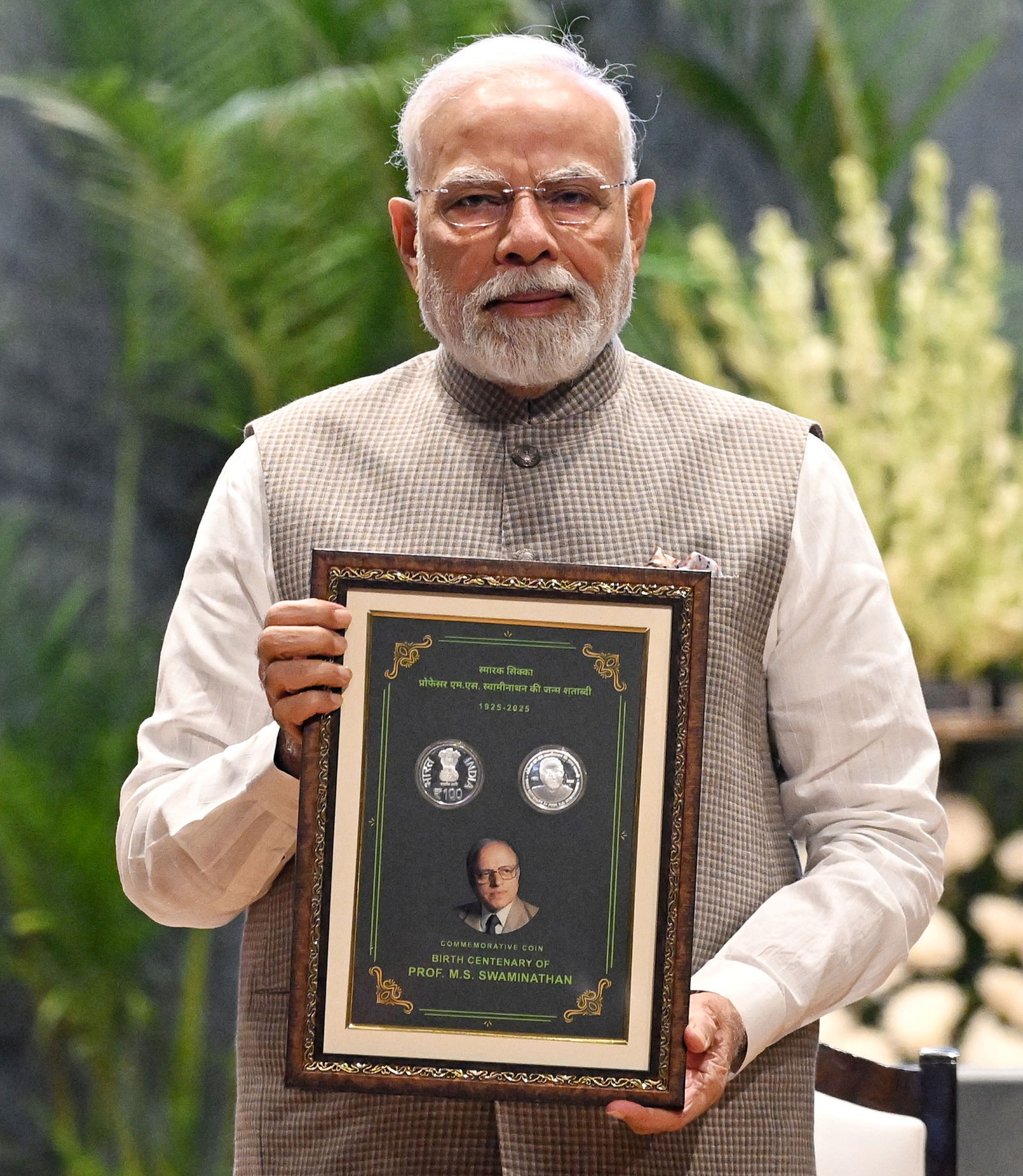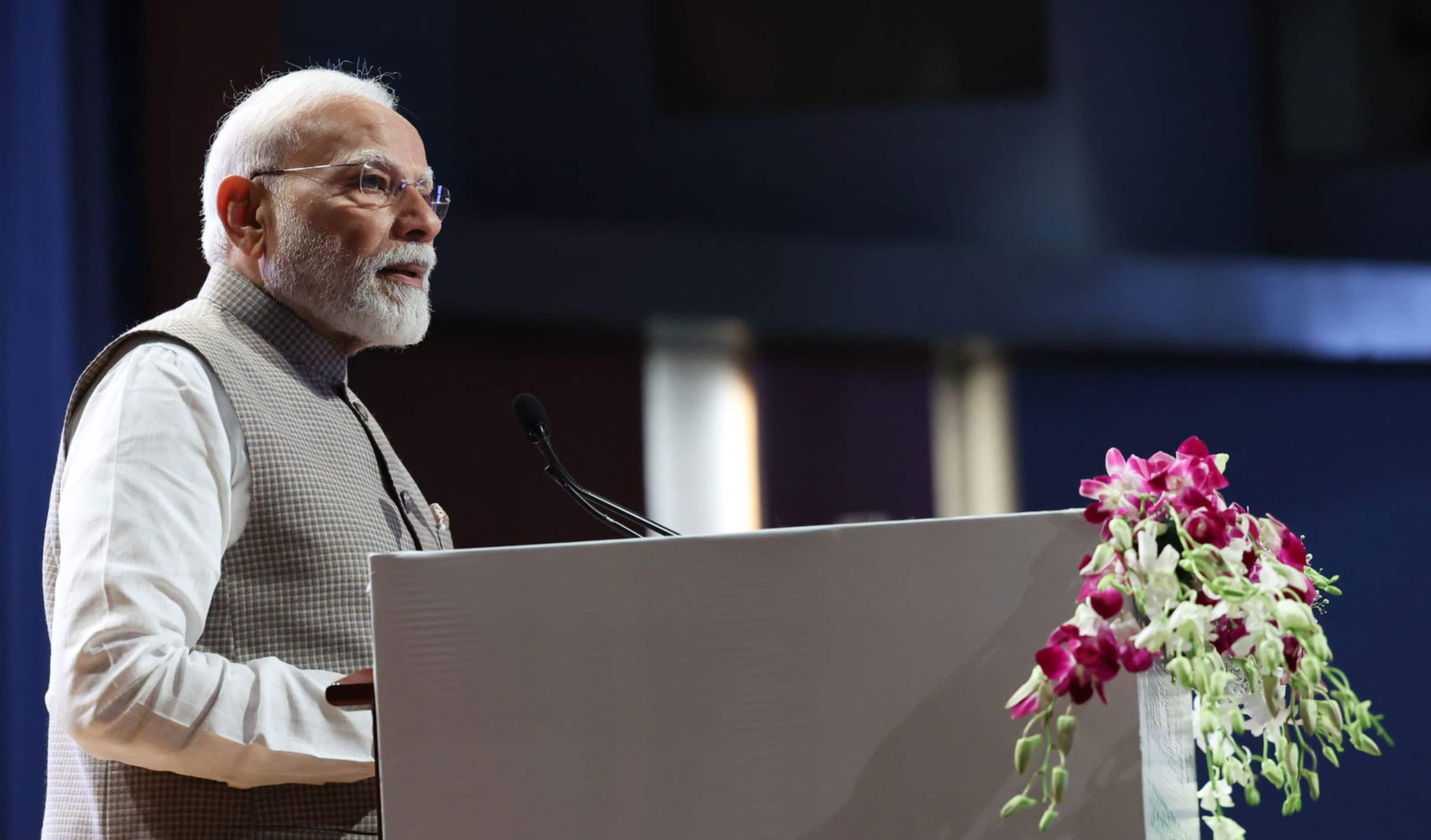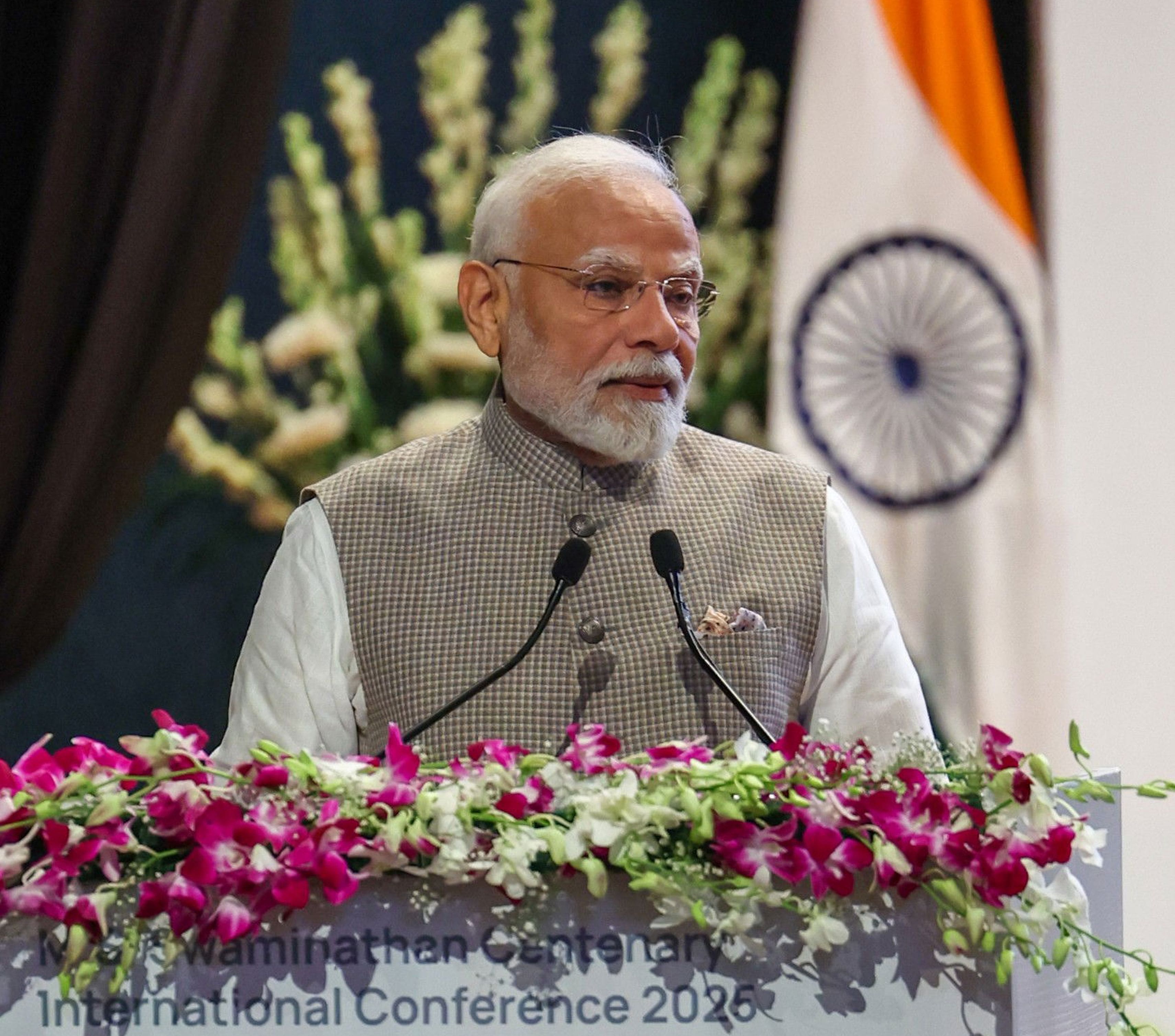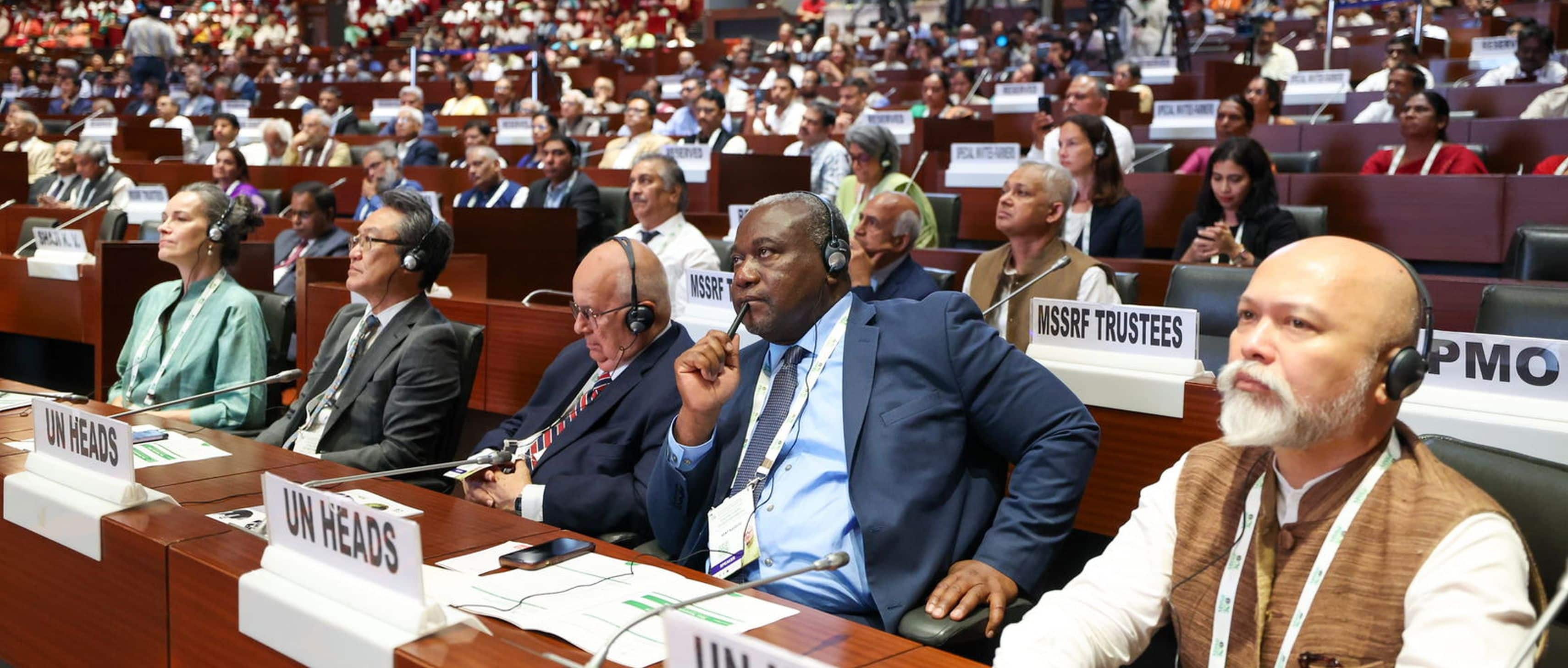The Prime Minister Shri Narendra Modi addressed the Indian Community at an event organised in Georgetown, Guyana today. The President of Guyana, Dr. Irfaan Ali, Prime Minister Mark Philips, Vice President Bharat Jagdeo, Former President Donald Ramotar were present among others. Addressing the gathering, Shri Modi thanked the President and expressed happiness over the grand welcome he received with special warmth on his arrival. He further thanked the President and his family for their warmth and kindness. “The Spirit of hospitality is at the heart of our culture”, said Shri Modi. The Prime Minister remarked that he planted a tree with the President and his Grandmother as part of the Ek Ped Maa ke Naam initiative of the Indian Government. He added that it was an emotional moment which he would remember forever.
The Prime Minister remarked that he was deeply honoured to receive the order of excellence, the highest national award of Guyana. He thanked the people of Guyana for the gesture. Shri Modi dedicated the award in honour of 1.4 billion Indians and the 3 lakh strong Indo-Guyanese community and their contributions to the development of Guyana.
Recalling the beautiful memories of his visit to Guyana two decades ago as a curious traveller, Shri Modi expressed happiness that now he had returned to the land of many rivers as the Prime Minister of India. Noting that there were a hoard of changes from then till now, he remarked that the love and affection of the Guyanese people remains the same. “You can take an Indian out of India, but you cannot take India out of an India”, said Shri Modi and added that his experience of the tour had reaffirmed it.
Recalling his visit to the Indian arrival monument, earlier in the day, the Prime Minister remarked that it brought to life the long and arduous journey of the ancestors of Indo- Guyanese people nearly two centuries ago. Noting that the people had come from different parts of India, Shri Modi said that they brought with them the diversity of cultures, languages and traditions and made Guyana their home over time. He added that these languages, stories and traditions are today a rich part of the culture of Guyana. He lauded the spirit of the Indo-Guyanese community for their fight for freedom and democracy. He noted that they had worked to make Guyana one of the fastest-growing economies leading to a rise to top from humble-beginnings. Lauding the efforts of Shri Cheddii Jagan, Shri Modi said Shri Jagan rose to be a leader of global stature from his beginnings in a humble background of a family of labourers. He added that President Irfan Ali, Vice President Bharrat Jagdeo, former President Donald Ramotar were all ambassadors of the Indo-Guyanese community. The Prime Minister also noted that many Indo-Guyanese like Joseph Roman, one of the earliest Indo-Guyanese intellectuals, Ram Jaridar Lalla, one of the earliest Indo-Guyanese poets, Shana Yardan, the renowned women poet and others have had a profound impact in the fields of art, academics, music and medicine.
Highlighting that our commonalities provided a strong foundation to India-Guyana friendship, Shri Modi said Culture, Cuisine and Cricket were three important things in particular that connected India with Guyana. He added that this year’s Diwali was special as Shri Ram Lalla had returned to Ayodhya after 500 years. He further added that the people of India also remembered that the holy water and shilas from Guyana were also sent to build the Ram Mandir in Ayodhya. He lauded that their cultural connection with Mother India was strong, despite being oceans apart and he could feel this when he visited the Arya Samaj Monument and Saraswati Vidya Niketan School earlier in the day. Shri Modi remarked that both India and Guyana were proud of our rich and diverse culture and saw diversity as something to be celebrated, not just accommodated. He added that both countries were showing how cultural diversity was their strength.
Touching upon the cuisine, the Prime Minister noted that the Indo-Guyanese community also has a unique food tradition which has both Indian and Guyanese elements.
Discussing the love for cricket which binds our nations strongly, Shri Modi said it is not just a sport, but a way of life, deeply embedded in our national identity. He added that the Providence National Cricket Stadium in Guyana stands as a symbol of our friendship.Underling that Kanhai, Kalicharan, Chanderpaul were all well-known names in India, Shri Modi said Clive Lloyd and his team have been a favourite of many generations. He added that young players from Guyana also had a huge fan base in India. He further added that many Indians enjoyed the T-20 World Cup that was hosted there earlier in the year.
The Prime Minister remarked that he had the honour of addressing the Guyanese Parliament earlier in the day. He added that coming from the Mother of Democracy, he felt the spiritual connection with one of the most vibrant democracies in the Caribbean region. Shri Modi underlined that India and Guyana have a shared history that binds us together such as the common struggle against colonial rule, love for democratic values and respect for diversity. “We have a shared future that we want to create”, said Shri Modi emphasising the aspirations for growth and development, Commitment towards economy and ecology and belief in a just and inclusive world order.
Expressing that the people of Guyana are well-wishers of India, Shri Modi highlighted “India’s journey over the past decade has been one of scale, speed and” sustainability.”. He added that in In just 10 years, India has grown from the tenth largest economy to the fifth largest and soon, India will become the third-largest. Lauding the youth, he said they have made us the third largest start-up ecosystem in the world. Shri Modi further highlighted that India was a global hub for e-commerce, AI, fintech, agriculture, technology and more. Emphasising India’s space missions to Mars and the moon, the Prime Minister said from highways to i-ways, airways to railways, we are building state of art infrastructure. Underling that India had a strong service sector, Shri Modi said that now India was also becoming stronger in manufacturing and India had become the second largest mobile manufacturer in the world.
“India’s growth has not only been inspirational but also inclusive”, highlighted the Prime Minister and added that India’s digital public infrastructure was empowering the poor and the Government had opened over 500 million bank accounts for the people and connected these bank accounts with digital identity and mobiles. This, he said, helped people receive assistance directly in their bank accounts. Shri Modi also said that Ayushman Bharat was the world’s largest free health insurance scheme, benefiting over 500 million people. He added that the Government had built over 30 million homes for those in need. “In just one decade, we have lifted 250 million people out of poverty”, highlighted Shri Modi. He added that even among the poor, the initiatives had benefited women the most and Millions of women were becoming grassroots entrepreneurs, generating jobs and opportunities.
Emphasising that while all this massive growth was happening, India was also focused on sustainability, Shri Modi said that in just a decade, India’s solar energy capacity grew 30-fold and had moved towards green mobility, with 20 percent ethanol blending in petrol. He added that at the international level too, India had played a central role in many initiatives to combat climate change like the International Solar Alliance, the Global Biofuels Alliance, the Coalition for Disaster Resilient Infrastructure among other initiatives having a special focus on empowering the Global South. The Prime Minister emphasised that India had also championed the International Big Cat Alliance and Guyana, with its majestic Jaguars, also stands to benefit from this.
Recalling that India had hosted President Irfaan Ali as the Chief Guest of the Pravasi Bharatiya Divas, last year, Shri Modi said India also received Prime Minister Mark Phillips and Vice President Bharrat Jagdeo in India. He added that together, they had worked to strengthen bilateral cooperation in many areas. Shri Modi remarked that today, both countries had agreed to widen the scope of our collaboration - from energy to enterprise, Ayurveda to agriculture, infrastructure to innovation, healthcare to human resources, and data to development and the partnership also holds significant value for the wider region. He added that the second India-CARICOM summit held yesterday was a testament to the same. The Prime Minister remarked that as members of the United Nations, both countries believed in reformed multilateralism and as developing countries, they understood the power of the Global South. He added that they sought strategic autonomy and support for inclusive development. Shri Modi said both countries prioritise sustainable development and climate justice and continue to call for dialogue and diplomacy to address global crises.
Referring to the diaspora as the Rashtradoots, Shri Modi said they were Ambassadors of Indian culture and values. He added that the Indo-Guyanese community was doubly blessed as they had Guyana as their motherland and Bharat Mata as their ancestral land. The Prime Minister underscored that today, when India was a land of opportunities, each one of them could play a bigger role in connecting our two countries.
Urging the diaspora to participate in the Bharat Ko Janiye Quiz which was launched, the Prime Minister said that the quiz was a good opportunity to understand India, its values, culture and diversity. He urged the people to invite their friends too to participate.
Shri Modi invited the diaspora to participate with families and friends in the Maha Kumbh to be held at Prayagraj, from 13 January to 26 February next year. He also added that they could visit the Ram Temple at Ayodhya.
Concluding the address, the Prime Minister also invited the diaspora to come and participate in the Pravasi Bharatiya Divas that will be held in Bhubaneswar in January and partake in the blessings of Mahaprabhu Jagannath in Puri.
Click here to read full text speech
You can take an Indian out of India, but you cannot take India out of an Indian: PM @narendramodi in Guyana pic.twitter.com/lJuyfAYH7a
— PMO India (@PMOIndia) November 21, 2024
Three things, in particular, connect India and Guyana deeply.
— PMO India (@PMOIndia) November 21, 2024
Culture, cuisine and cricket: PM @narendramodi pic.twitter.com/TwhPevlimu
India's journey over the past decade has been one of scale, speed and sustainability: PM @narendramodi pic.twitter.com/REbJ1MWnKL
— PMO India (@PMOIndia) November 21, 2024
India’s growth has not only been inspirational but also inclusive: PM @narendramodi pic.twitter.com/w40NO42na0
— PMO India (@PMOIndia) November 21, 2024
I always call our diaspora the Rashtradoots.
— PMO India (@PMOIndia) November 21, 2024
They are Ambassadors of Indian culture and values: PM @narendramodi pic.twitter.com/H8FWACdlwE























